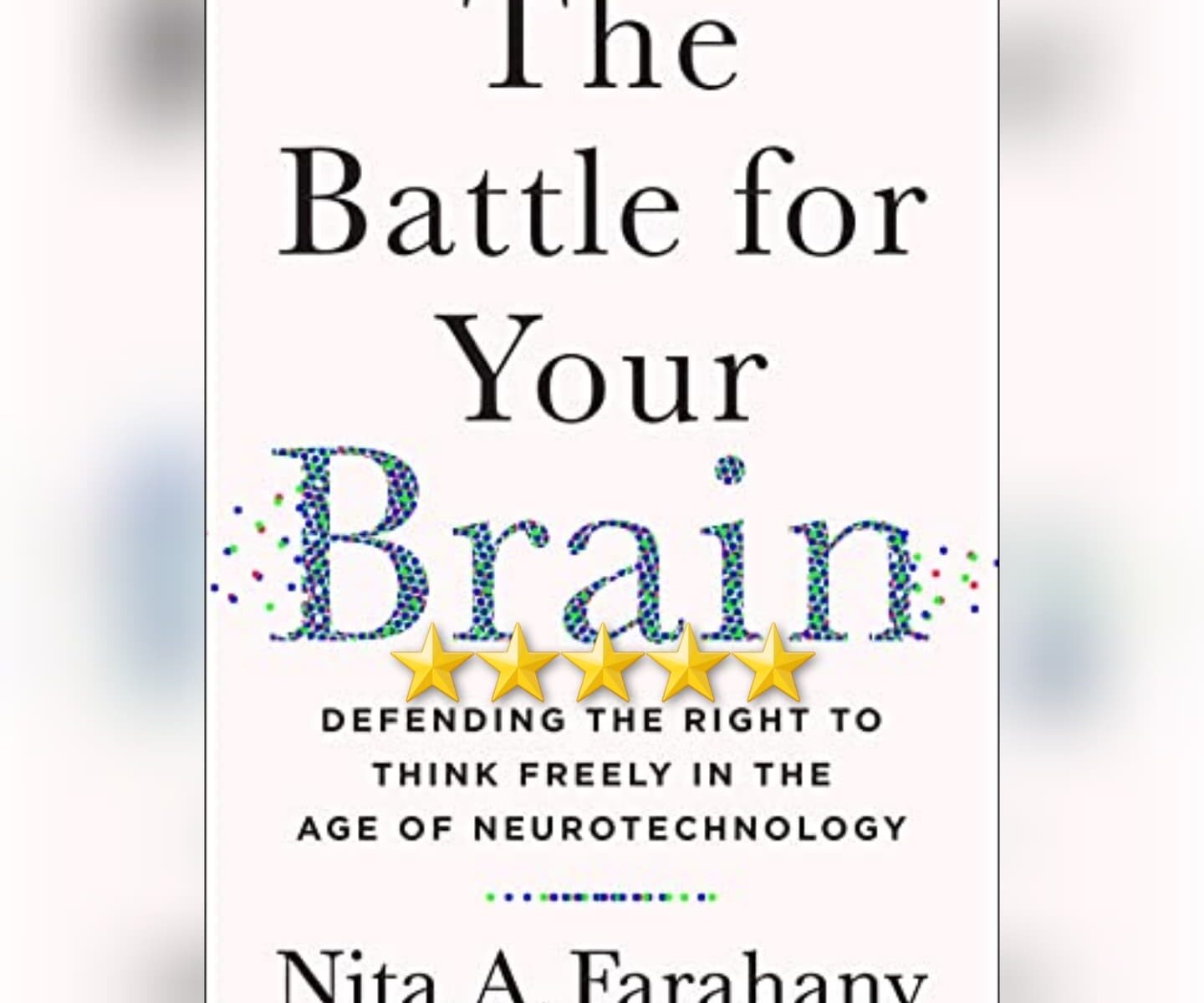Well Documented Examination And Discussion. This book is, quite simply, one of the best documented books I’ve ever come across – 48% of the text of the ARC I read months before publication was documentation. Within the narrative itself, Farahany does a great job of using the principles espoused in John Stuart Mill’s 1859 book On Liberty as a recurring touch point on the need for liberty of the mind and brain – the last bastion of true privacy left in this increasingly interconnected world of multiple overlapping surveillance systems. Farahany does an excellent job of showing both the biological and the social side of what is happening when, and the various implications it can have for everything from criminal prosecution to employment, and many other topics as well. Written from a decidedly libertarian, pro-freedom perspective, this is absolutely a book that everyone will need to read and contemplate. Very much recommended.
This review of The Battle For Your Brain by Nita A. Farahany was originally written on October 1, 2022.

